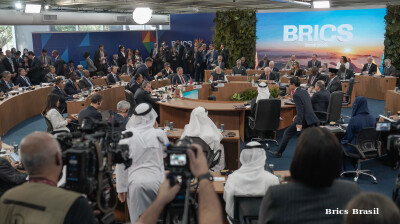The Dutch appeal court ruled on June 27 that Dutch troops under UN command were partially responsible for the murder of around 350 Muslim men in the Srebrenica genocide during the bloody 1992-1995 Bosnian war.
Around 8,000 Muslim men and boys were murdered in the 1995 Srebrenica genocide by Bosnian Serbs under the command of Ratko Mladic who is on trial for genocide at the Hague-based International Criminal Tribunal for the former Yugoslavia. The ruling is significant since it establishes responsibility for both the troops and their government, setting a precedent for future peacekeeping missions.
The June 27 ruling confirms an earlier decision by the civil court that the Dutch battalion should have known that the Muslim men seeking refuge at the base near Srebrenica would be murdered by Bosnian Serb troops if they were forced to leave.
“The men were made to leave the compound of Dutchbat [the Dutch battalion] on July 13, 1995 and were subsequently killed by Bosnian Serbs. By letting the men leave the compound unreservedly, they were deprived of a chance of survival,” the appeal court said in a statement following the ruling.
It added that Dutchbat knew there was a real risk that the Muslim men would face inhumane treatment or would be murdered, but decided to proceed with the aim of saving the lives of women and children.
However, the court said that the Netherlands is only 30% responsible as the Bosnian Muslim men had little chance to survive anyway.
The case was launched by The Mothers of Srebrenica – an NGO of Bosnian Muslim women who lost their loved ones in the Srebrenica massacre. The NGO is seeking compensation for the actions of Dutchbat.
“Perhaps they would not have survived either in that case, because the Bosnian Serbs would have blocked access of relief supplies (water, food) or would have removed the men from the compound by force, but they would still have had a chance of survival in that case. The Court of Appeal estimates that chance to be 30%. The state is therefore liable for 30% of the losses suffered by the relatives,” the statement reads.
The appeal court also ruled that Dutchbat was not responsible for the murders prior to July 13, 1995.
“Concerning the actions of Dutchbat until the fall of Srebrenica, the Hague Court of Appeal has ruled today that the state had no control over those actions. The soldiers acted within the UN chain of command. The state is not liable for that,” it said.
Munira Subasic, chairman of The Mothers of Srebrenica, called the verdict shameful.
“This is a shameful verdict, they have transferred all responsibility to the Serbs and said they committed the genocide and that [the Dutch] were unable to do anything … This will be remembered, it will be remembered that they were sued by mothers and may they carry us in their souls,” daily Nezavisne Novine quoted Subasic as saying.
After the ruling was issued, Amnesty International also issued a statement, assessing the verdict's importance for peacekeeping missions.
"More than two decades after the Srebrenica massacre, this decision establishes that peacekeepers can be held responsible for a failure to protect civilians and that their governments can and will be held to account for their conduct. ... It draws an important line in the sand and may help ensure that such crimes do not happen again, especially not on the watch if international peacekeeping forces," the statement quoted John Dalhuisen, Amnesty International's Europe director, as saying.
The Bosnian war broke out after Bosniaks and Croats voted for independence from the former Yugoslav federation in a 1992 referendum boycotted by Serbs, which wanted to stay part of former Yugoslavia.
The Hague tribunal has already convicted 14 people for the massacres. Three were given life sentences - two former officers from the Bosnian Serb Army’s main headquarters, Zdravko Tolimir and Ljubisa Beara, as well as former Bosnian Serb Army Drina Corps security officer Vujadin Popovic.
In March last year, the Hague tribunal sentenced former Bosnian Serb leader Radovan Karadzic to 40 years in jail after finding him guilty of ten of the 11 charges against him. The tribunal found Karadzic guilty of genocide, the same crime of which Mladic has also been accused. He was also found guilty of crimes against humanity and war crimes.
News

Xi and Putin to join BRICS emergency talks on US trade measures
Brazil's President Lula rallies leaders from emerging economies for a virtual meeting to find a coordinated response to aggressive US trade measures.

Nepal Gen-Z protests turn deadly as police open fire
While Nepal has been rocked by violence related to the restoration of monarchy in the country as well as political disputes between nationally and regionally relevant groups and parties, protests related to internet freedom are a new phenomenon.

Hungary's 4iG announces landmark acquisition of automaker Raba in partnership with Czech CSG
Acquisition is the centrepiece of 4iG's strategy to integrate ground mobility into a defence portfolio that already spans aerospace and satellite technologies.

Iranian officials to discuss nuclear file in Cairo
Iran's Foreign Minister may visit Egypt as Tehran expands regional diplomatic engagement to strengthen partnerships and discuss international developments amid nuclear talks.




